CBT FOR TRAUMA AND ADDICTION
Contact Us | Call Us | Admissions
Cognitive Behavioral Therapy, CBT, is one of the most widely practiced therapies in the world today. CBT was developed by Dr. Aaron T. Beck. CBT is an evidence-based modality that results in long-lasting change. Dr. Beck found that behavior is determined by “automatic thoughts” or cognitions. CBT is based on the idea that how we think (cognitions), how we feel (emotion), and how we act (behaviors) all interact together. That our automatic thoughts dictate our feelings and our behaviors, and that behaviors reinforce thoughts.
For recovery to take place clients learn to identify their automatic thoughts which fall into three categories: thoughts about themselves, the world, and/or their future. By assisting clients to identify and evaluate their automatic thoughts they will begin to think more realistically, allowing change in behavior.
Clients meet up to twice per week for individual therapy and once per week, during group, with a therapist or Behavioral Health Technician for resourcing that teaches new coping strategies, and to work on a relapse prevention success plan and discharge.
Clinicians will assist in family preparation prior to discharge. Family sessions are available during the week of discharge.
How Common is Cognitive Behavioral Therapy?
CBT is a popular and proven treatment method used for a variety of purposes. Counselors, doctors and other treatment providers use this approach when working with people who are struggling with a variety of conditions, including but not limited to:
- Substance abuse and addiction
- Mental health disorders such as depression or anxiety
- Other addictions, including sexual or gambling addictions
- Eating disorders
Does CBT for Substance Abuse Really Work?
Cognitive behavioral therapy overall is one of the most documented forms of talk therapy, and hundreds of studies have shown it can be effective. One study published by the National Institutes of Health, for example, stated that the “evidence-base of CBT is enormous.” Those are big research words that simply mean there’s a long history of documentation to support that CBT works.
An article originally published in Frontiers in Psychiatry calls CBT the gold-standard, noting that it’s the most researched psychotherapy in the field.
Some reasons cognitive behavioral therapy works so well, especially for those dealing with addiction, include:
- CBT is typically fairly structured, providing a type of secure support that people caught in addiction often crave. This structure is designed to help people process issues related to addiction and work to resolve them in increments that are realistic and possible.
- Treatment providers teach ways people can use CBT practices outside of therapy and may give “homework.” This helps individuals in recovery continue to work on addiction in a proactive manner, even outside the therapy hours.
- CBT has been extensively tested in recovery environments, which means professionals today know how to approach various scenarios and addictions in the best way. That knowledge helps them increase success for each patient and can sometimes lead to faster initial recovery times.
What to Expect From CBT for Addiction Treatment
During a CBT session for addiction treatment, your therapist encourages you to talk through a wide range of topics, including your thoughts, feelings and reactions. While you’ll obviously talk about your addiction, including what led to substance abuse, how you feel about using drugs or alcohol and how your life has changed, CBT for substance abuse can also cover other topics.
But you do more than talk. You work with your therapist to set goals and practice behavioral and thought changes. Typically, CBT includes steps such as:
- Identifying the conditions, behaviors and events that lead to or contribute to substance abuse
- Developing a greater awareness of what you believe, feel and think about these challenges
- Working to identify the negative and/or false beliefs and thoughts
- Replacing those thoughts with new, more accurate ones
To get started with our Cognitive Behavioral Therapy program in Prescott, Arizona call (800) 680-7738 or contact us to get started.

HEAR FROM PAST CLIENTS
Why Holdfast?
-
We Provide Top-Rated Drug & Alcohol Addiction Treatment
-
We Work With Limited Budgets and Insurance
-
We Support & Care For You Without Judgment


